26.06.2020/XNUMX/XNUMX / field reports
Report from a horse ranch in Tanzania
Overall, I felt I was in good hands with the project. In the beginning it was a bit difficult to look for tasks and employment on my own without a lot of guidance. However, I found this freedom to be really great and enriching. The country itself is culturally a huge difference to Germany, which you first have to get used to and get used to, and without one or the other word Kiswahili it can sometimes be a bit difficult. But you learn this quickly.
Ine's time in Tanzania
After graduation I wanted to get out again. Somewhere, experience something completely new again. By chance I came across RGV on the internet and found the perfect project for me right away. An internship on a horse farm. First it should be a farm near Dar es Saalam. However, three weeks before it was supposed to start, I got an e-mail that there would probably be problems on this one. But there is already a replacement project in Iringa a little further south.
At first I was a bit skeptical, because there weren't any reviews or anything like that about this farm. However, this turned out to be entirely unnecessary. The flight was then quickly booked and the visa applied for. The only problem: the visa is valid from the creation date. However, since I was staying in Tanzania for exactly three months and did not want to apply for a new one a few days before departure, it had to be created in Berlin one day before departure and then brought to us in Cologne. Luckily everything went smoothly at first.
The trip to Tanzania
So on October 10.10.2017th, 03 it started. From Düsseldorf via Istanbul to Dar es Saalam. At 30:10 a.m. at the airport, the first big shock. My suitcase isn't there. The lady at the counter only speaks very poor English, but after some back and forth she can tell me that the luggage was probably not reloaded by the airline in Istanbul at the airport and will probably arrive at 00:XNUMX the next day. Luckily I have a change of clothes and most other important stuff in my backpack.
Emanuel welcomes me outside. He then takes me to the transfer house in his Bajaji (a mixture of motorbike and car). Even then it became clear to me that Tanzania is really very different from Germany. While in Europe people stop at every traffic light and wait patiently, in Dar es Saalam it seems as if these are mostly just a suggestion of where to stop if you feel like it.
When I finally arrive, Emanuel shows me the house. Again a difference to what one is so used to here in Germany: The toilet is a standing toilet with a kind of large bucket next to it as a water reservoir. The shower is more like a garden hose sticking out of the wall and there is no mirror like in almost every bathroom in this country. Rather less rested but really motivated I sit at the breakfast table. With me is a team member who will do the orientation program with me. First we wait about an hour for another intern who is supposed to go on our little city tour, but who doesn't sleep in the same accommodation.
After we have exchanged the first dollars together and are both proud owners of a Tanzanian phone card, we are shown one of the many markets in Dar. We take a short lunch break in a restaurant or snack bar and try Chipsi Mayai for the first time, a kind of omelet with fries that is eaten by hand.
Arriving at the Student House
So the next day I finally get going on my project. My suitcase is supposed to follow sometime in the next three days. After an adventurous drive I arrive in Iringa in the evening. Shedrak receives me there. The host father in the student house. When I get there, I am greeted very warmly by the other volunteers. After the really delicious meal that Shedrak's wife Linda had cooked, I'm taken straight into town to end the evening in a small bar with the others. I spend the next two days there in the student house.
Onward journey to the horse ranch in Tanzania
After my suitcase finally arrives, Shedrak takes me to the farm. A cattle farm with 600 cattle and 300 sheep. The grounds are incredibly vast with large grazing areas and beautiful scenery. I finally get to know my British host family: Viktoria, Richardt and their son James. Furthermore, three very large, but incredibly loving dogs live in the house.
We chat a bit over tea in the incredibly beautiful garden. Viktoria then shows me my hut where I would live for the next three months. I really couldn't have done better. In addition to a really pretty living room with a small kitchen in the corner and a private bathroom, I get a small room with a closet, chest of drawers with a mirror and a double bed. After Viktoria then told me there was even a washing machine in the main building, which I could use, it was clear to me: It's bearable here.
The introduction to my work on the horse farm
After lunch, Viktoria introduces me to the groom Aterio, who takes turns taking care of the horses with Valentino. However, both hardly speak any English. Then she shows me the horses and the saddle room. This is really narrow and the saddles are partially on top of each other on makeshift hangers on the wall. Neither the bridles nor the saddles are labeled, "But I'll quickly learn what belongs to which horse," says Viktoria.
As we look at the horses, Viktoria tells me which ones I should work with and which ones I can ride. She explains to me that I am free to decide when, what and with which horse I work. There is always a stallion in the herd, which is not easy to handle. There are also two high-bearing mares. One only three years old. Another three-year-old is almost untouchable in the crate and a six-year-old is afraid of everything. The animals are not ridden much. However, every Friday a group of children come for therapy riding.
Viktoria suggests going horseback riding together to show me the area. These are initially sandy paths that lead between the cow pastures to the huge pasture area where the cattle are allowed to graze throughout the day. There are no fences or real paths anywhere and we ride cross country under some trees to a river. During the ride she explains to me what the daily routine on the farm is like.
My everyday work on the horse ranch
Breakfast around seven in the morning, but after a few days I realize that half past seven or eight is quite enough. Then bring in the horses and feed them and groom them. When everyone is done, we take them out to the pasture again. However, since my job is to work with the horses, I usually keep one or two in the stable to do a little ground work with them in the small paddock or to go riding with one of the keepers.
Lunch is at one noon. Mostly salad, bread and homemade juice. Then the young pregnant mare and the oldest member of the herd are fed again. After feeding I have a lot of free time, which I spend a lot on the pasture, going for a walk or cleaning saddles. Dinner is at seven. Always freshly cooked by a member of staff. We usually watch a movie together after dinner.
In the next few weeks I'll be mainly occupied with the three-year-old, who won't be touched in the box. I'll get her used to the longe, the saddle and the bridle and occasionally take her with me on a little ride as a hand horse. After a few weeks she becomes much calmer and friendlier in the crate. I can ride whenever I want. I can also choose the horse for it. However, this is often difficult alone because the horses are reluctant to leave their herd.
So it turns out that every few days the ten-year-old daughter of a friend of my host family comes to the farm and takes riding lessons. With these, however, we always go off-road because the farm does not have a riding arena.
The first foal is finally born in December. The little Allegro. Daily halter training and hoof lifting are now part of my day.
Activities in Iringa
At the weekend, my host family always organizes a small volleyball tournament, which is attended by many friends from the area. The other volunteers also play regularly. I usually spend the rest of the weekend at the student house in town doing all sorts of things. Sometimes we go hiking, sometimes to the Maasai market and sometimes we try the local delicacies all day long.
My conclusion from the horse farm
My time on the farm is over far too quickly. And I have to say goodbye to both my loved ones and my host family. During my time on the farm I had an incredible amount of freedom and at the same time I was able to see how much you can achieve with an animal in just a few months with a little work. I also experienced so many beautiful moments during the riding therapy, which I was allowed to help supervise. If I needed help or had a question, the family always had an open ear for me.
I always had a lot of fun with the two carers despite, or sometimes because of, the language barrier. Saying goodbye to my friendly and helpful host family is really hard for me and I would have loved to have stayed a few more months. As a small consolation, Shedrak from the student house was able to organize a safari in Ruaha Park for me and my mother, who picked me up.
Both Shedrak and Lukas were quickly there to troubleshoot in most cases.
Overall, I felt I was in good hands with the project. In the beginning it was a bit difficult to look for tasks and employment on my own without a lot of guidance. However, I found this freedom to be really great and enriching. The country itself is culturally a huge difference to Germany, which you first have to get used to and get used to, and without one or the other word Kiswahili it can sometimes be a bit difficult. But you learn this quickly.
Even if I had to leave little Allegro, my other new animal friends and a really great host family, I will definitely take wonderful memories from this time, a lot of serenity, as well as one or the other packet of new self-confidence.
Experience report from a horse ranch in Tanzania, by Ines S., June 2018
More projects that interest you could
Have you not yet discovered a suitable program for your time abroad? No problem, we will present you more Volunteer projects abroadthat might pique your interest.
Are you perhaps still at the beginning of thinking about your trip and have no idea what might be right for you? Whether you want to go abroad as a volunteer for a short time, or if you prefer FSJ up to 12 months abroad afford? Maybe there is one Internship abroad in a specific subject area the best way for you to gain experience abroad?
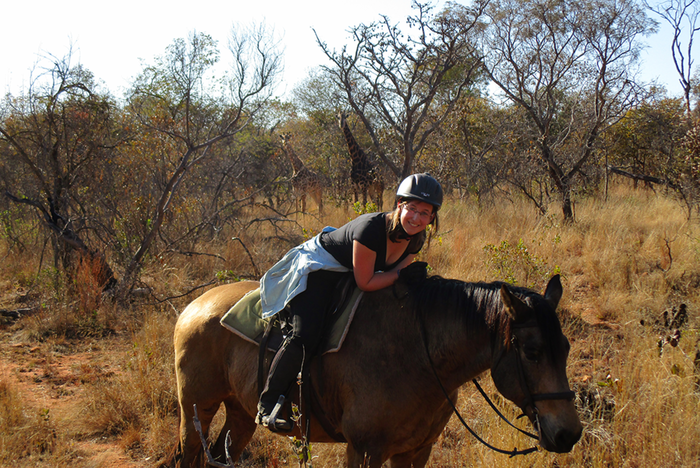
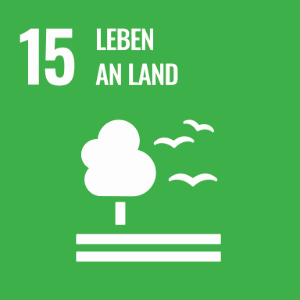
Tanzania & Zanzibar | horses
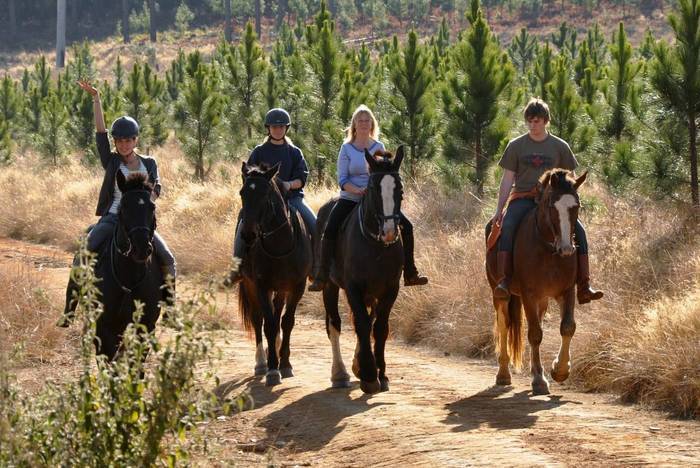

South Africa | horses
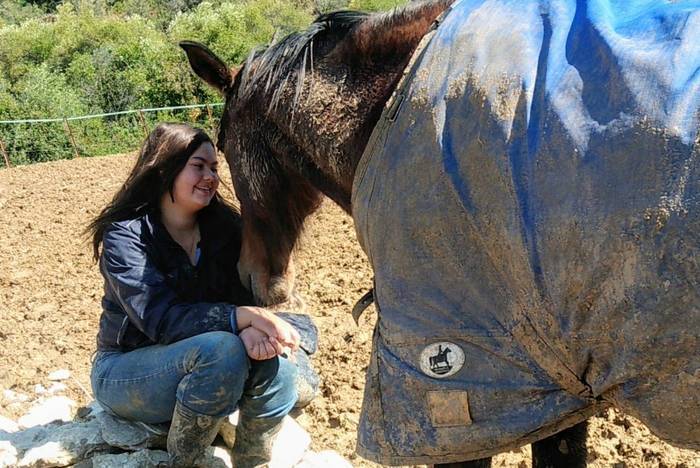

Spain | horses
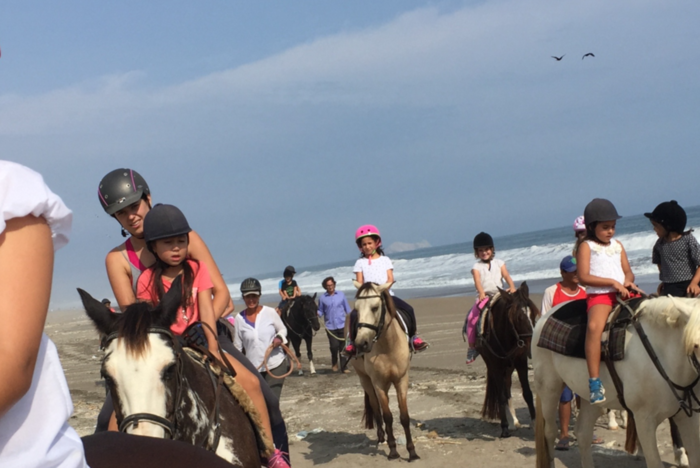
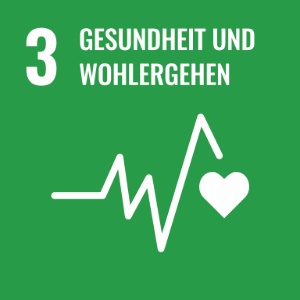
Peru | Social & Teaching
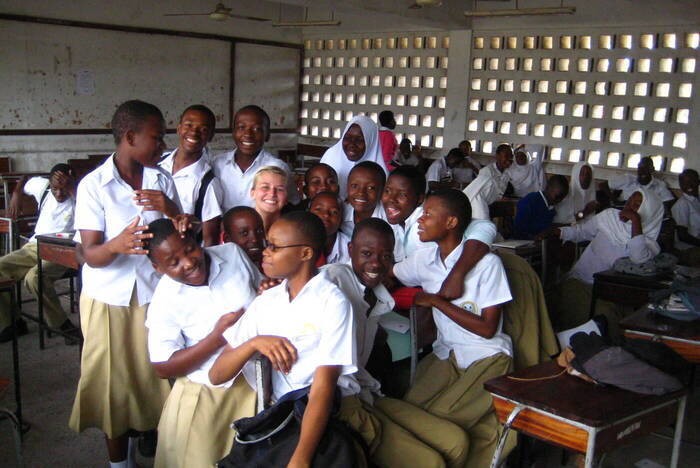
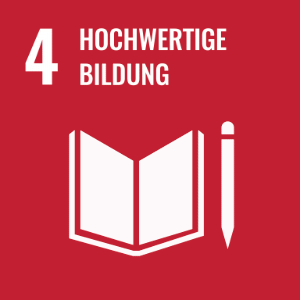
Tanzania & Zanzibar | Teach
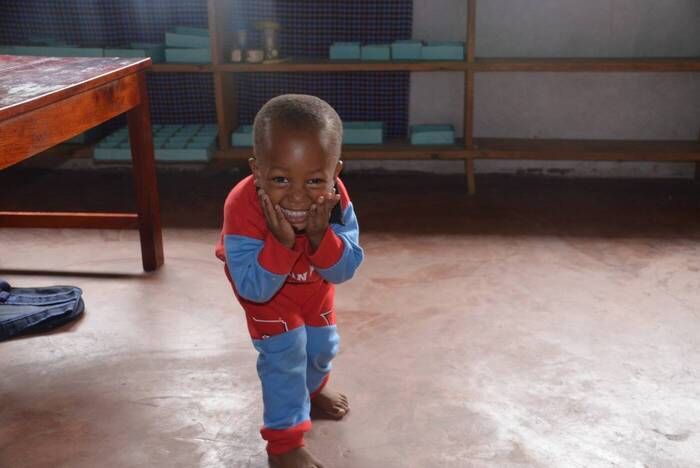

Tanzania & Zanzibar | childcare
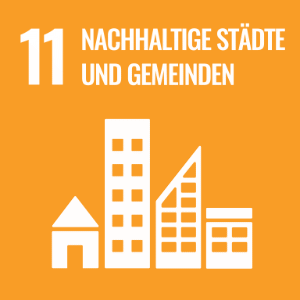
Tanzania & Zanzibar | house building
